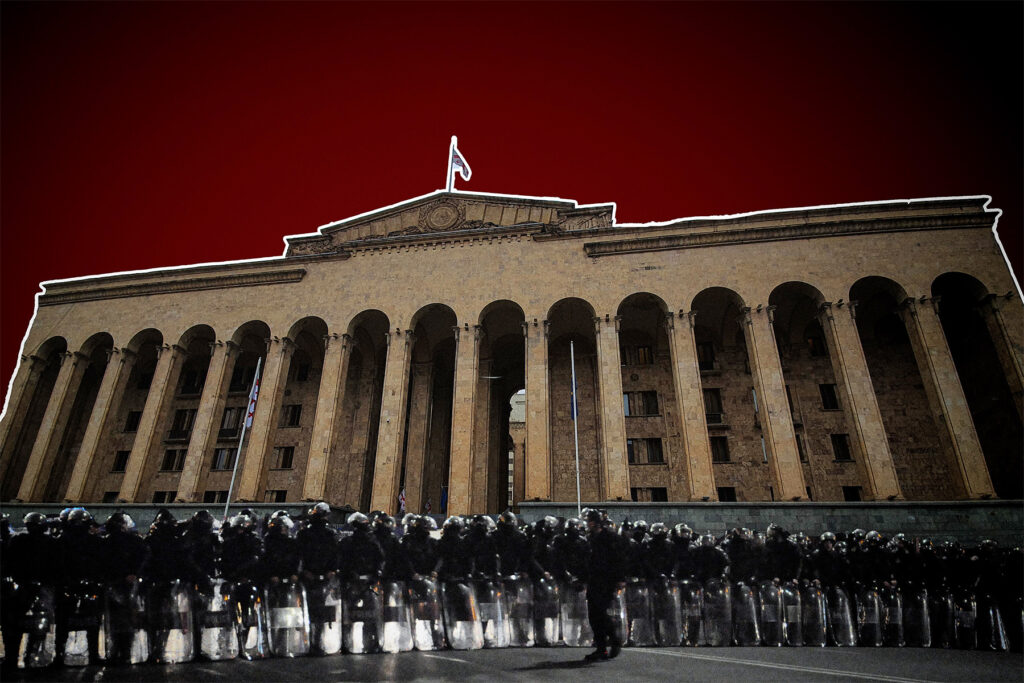Georgia’s escalating political turbulence highlights a crisis in institutional legitimacy in the country. This democratic deficit risks dragging the country into autocratic rule and reproducing the worst elements of its northern neighbour.
On Thursday, Giorgi Gakharia, the fourth Prime Minister in eight years of Georgian Dream rule, abruptly resigned over the plan by the Prosecutor’s Office to detain the leader of the United National Movement — by far the biggest opposition party in the country.
His departure appears to confirm speculation of tension between Gakharia and the founder of Georgian Dream, Bidzina Ivanishvili over the past several months.
Ivanishvili, the wealthiest man in Georgia and the founder of Georgian Dream, is justifiably suspected of still holding enormous informal power over Georgia’s state institutions through loyalists he had appointed to key positions. These include the current chair of Georgian Dream, Irakli Kobakhidze, Interior Minister Vakhtang Gomelauri, and a group of judges dubbed ‘the clan’ who secured lifetime appointments to the Supreme Court under Georgian Dream.
In the hours after Gakharia’s explosive announcement, it quickly became apparent that the country’s ongoing political crisis would not come to an end any time soon as Kobakhidze has continued to insist the government would seek the arrest of Nika Melia, the newly appointed chair of the UNM.
While it should be up to a court to decide if Nika Melia broke the law, remanding the top opposition leader into custody nearly 20 months after his indictment called for a strong legal justification that prosecutors failed to provide. The credibility of the prosecution is only further jeopardised in light of the uninvestigated police actions that left about 275 people, including journalists, injured during the violence on the night of 20 June.
Legitimacy crisis
In the run-up to October’s parliamentary election, Georgian Dream did include some promising newcomers on their electoral list who vowed to prepare the country for an EU membership bid by 2024.
This, as well as continued cooperation with Western countries and institutions, has cast a shadow over liberal opposition groups’ dubious claims of Ivanishvili seeking to turn the country into a Russian fiefdom.
What the party in power has failed to understand, however, is that their alarming lack of commitment to the separation of powers risks dragging Georgia into an autocratic rule resembling its authoritarian regional neighbours, including Russia.
The experience of Giorgi Gakharia — who turned out to be a relatively level-headed pragmatist, despite his previously inflammatory tone towards the UNM — should be a sobering reminder. Political leaders must meet the country’s institutional shortcomings head-on, and cannot continue to be complacent with the lack of electoral success of the opposition.
Overall, Gakharia did well in responding to the pandemic and most Georgians saw this through the political noise. But democracy takes much more than an apt manager. It requires transparency and respect for dissenting voices outside the government — especially during a crisis.
Georgian Dream was handed another four years in power in October despite, and not because of, their unimpressive record in reforming the country’s electoral, judicial, and security structures.
The party’s latest announcement to field Irakli Gharibashvili, a hardliner and Ivanishvili confidant, as Gakharia’s replacement is only a recipe for further polarisation.
It is highly unlikely that he will inspire even those who risked their health in October to cast a vote of confidence in Bidzina Ivanishvili and Giorgi Gakharia’s party. Especially since it is deeply abnormal for representative democracy to see both of them — the party chair and the one who led the election list — fleeing from the scene (officially, at least) so soon after their win.
This is the definition of a legitimacy crisis.
What Georgians need now is for this circus to be finally over. They need vaccines and direct aid to face a shortage of income, not additional months of political grandstanding.
Whatever Georgian Dream chooses to do in the coming days and weeks, Georgia’s international partners could step up to ensure that negotiations between the rival sides resume immediately and that electoral reforms are finally duly implemented.
But, given the present circumstances, a rejection of the new cabinet in parliament paving the way for snap elections may be the only reasonable way out of the stalemate.




 18 February 2021
18 February 2021




